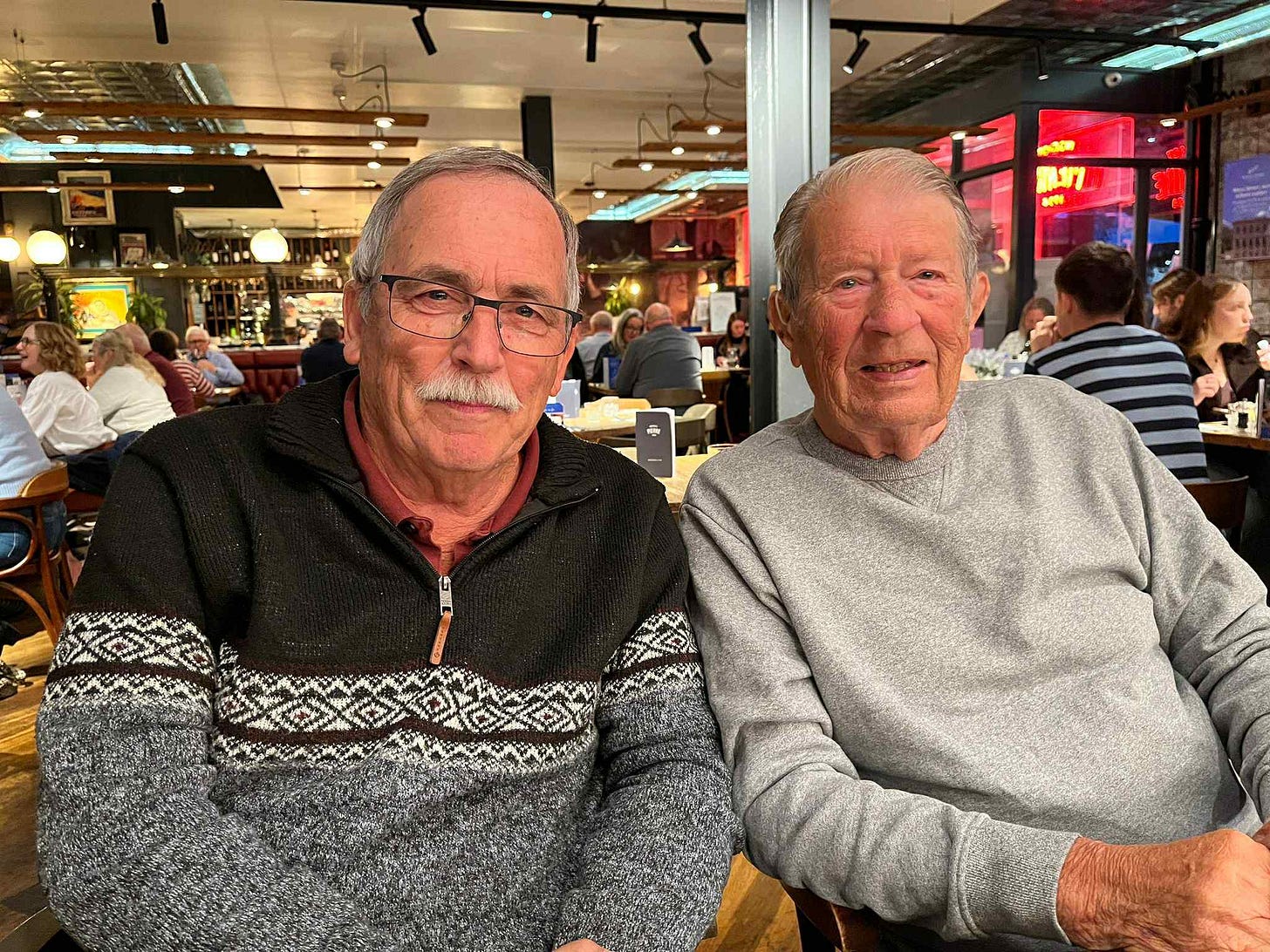Standing at a Distance, Paying Attention
What Moses’ sister, a Facebook message, and my family’s past have in common.
Time slips by. We hadn’t planned to take a summer break from Ordinary Matters, yet here we are—it’s already fall. Thank you for your patience!
This summer was filled with visits from friends abroad, a bit of local travel, and plenty of delight in the beauty of our island and the gift of family life. As September began, like many families, we fumbled our way back into regular rhythms. I also helped launch a new project at Coastline—something I’ve been quietly working on for the past year: the Ascend program. It’s a ten-month gap year for high school graduates who want to pause and discern their vocation and calling. Our first cohort includes eight students, and working with them has been a surprising joy. Additionally, I’m teaching a bachelor’s-level course called The Drama of Scripture, which drew ninety participants (including our Ascend and Coastline College students). Together with other commitments, all of this has kept me quite busy.
The Gift of Watching Closely
Although I’ve been a bit distant from Ordinary Matters this summer, I’ve still been paying attention—to life, to God’s work, and to the ways small acts of attentiveness can open unexpected doors. Which is why my mind keeps returning to the posture of Moses’ sister:
Now a man of the tribe of Levi married a Levite woman, and she became pregnant and gave birth to a son. When she saw that he was a fine child, she hid him for three months. But when she could hide him no longer, she got a papyrus basket for him and coated it with tar and pitch. Then she placed the child in it and put it among the reeds along the bank of the Nile. His sister stood at a distance to see what would happen to him.
Then Pharaoh’s daughter went down to the Nile to bathe, and her attendants were walking along the riverbank. She saw the basket among the reeds and sent her female slave to get it. She opened it and saw the baby. He was crying, and she felt sorry for him. “This is one of the Hebrew babies,” she said.
Then his sister asked Pharaoh’s daughter, “Shall I go and get one of the Hebrew women to nurse the baby for you?”
“Yes, go,” she answered. So the girl went and got the baby’s mother. Pharaoh’s daughter said to her, “Take this baby and nurse him for me, and I will pay you.” So the woman took the baby and nursed him. When the child grew older, she took him to Pharaoh’s daughter and he became her son. She named him Moses, saying, “I drew him out of the water.”
I love that line: “His sister stood at a distance to see what would happen to him.”
Distant, yet attentive.
If you’re unfamiliar with Exodus, the story begins with Abraham’s descendants—the people of Israel—suffering under the crushing hand of Pharaoh. Intimidated by their growing numbers, he pressed them into bitter labor. Worse still, he decreed that every newborn Hebrew boy be killed. It’s a bleak backdrop. And yet, amid that darkness, two midwives—Shiphrah and Puah—rise as unexpected heroines. Fearing God, they refused to obey Pharaoh’s command and allowed the boys to live.
Turn the page, and another heroine emerges: Moses’ sister, quietly taking her place in God’s unfolding redemptive story. (As an aside: the opening chapters of Exodus are full of women whose courage and attentiveness propel God’s redemptive story forward—midwives, mothers, sisters, even Pharaoh’s daughter).
I want to ask: what if Moses’ sister she hadn’t dared to linger there, watching from a distance?
I imagine Pharaoh’s daughter still would have rescued the child—but Moses’ mother would have missed the unthinkable grace of holding her son again. The warmth of his small body against hers. The sound of his cry quieted at her breast. The chance to love and nurture him for a little while longer.
I want to be like Moses’ sister: present and attentive, even if at a distance, watching with patience and hope—ready to step in when the moment comes to join in God’s redeeming work. I doubt she knew that her presence would be an intervention of grace.
An Ordinary Not-So-Ordinary Story
What might it look like to pay attention—to wait and see what will happen—in the ordinary flow of our lives?
About a year ago, I received an unexpected Facebook message from a woman doing genealogy research for her grandfather. At first, I assumed it was spam. But as I paid closer attention, I sensed she was sincere. Long story short, we uncovered a startling family secret: my paternal grandfather had been married before my grandmother—a fact none of his children had known, even fifty years after his death. Which meant my dad had a half-brother he had never met.
I was able to help make some introductions. And just this month, my parents traveled to the United Kingdom, where my dad met his half-brother for the very first time.
Of course, this is an unusual story of paying attention. The simple act of noticing has power. In my family’s case, it was the mutual attentiveness of myself and, not so randomly, a woman who turned out to be my half-first cousin once removed (let every genealogist rejoice) that dismantled decades of distance. In Exodus, the attentive courage of Moses’ sister became part of God’s work to dismantle oppression itself. To be clear, estrangement in a family is not the same as the oppression Israel endured under Pharaoh—one is far more severe and devastating. Yet both reveal the glory of our God, who liberates the oppressed and reunites the estranged.
So again I ask: what might it look like to pay attention—to wait and see what will happen—in the ordinary flow of our lives?
I am certain we will see God’s redemptive story unfolding in our midst—especially in those ordinary places that become the stage for extraordinary grace.
I wonder—where has attentiveness opened a door for you? Where have you stood at a distance, watched, and caught a glimpse of God’s redeeming work?



